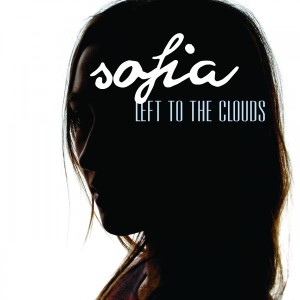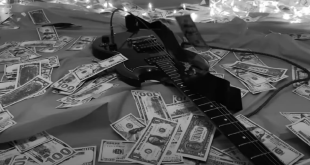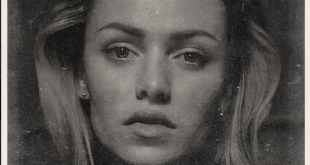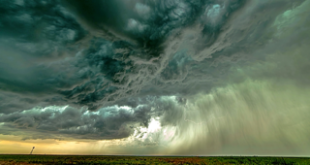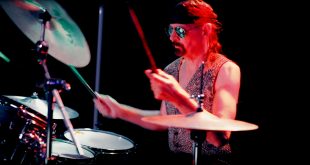Growing up in a musical family, Sofia Donavan was encouraged by her parents to always follow her muse. At 13, her passion for writing music evolved into more than just a hobby, it became a calling. Having grown up in London, Sofia took a leap of faith, moving to Birmingham, Alabama where after sharing her song on a website called MusicXray, she formed several important professional relationships that led to her debut EP, Left of the Clouds. Heavily inspired by artists like Taylor Swift, Ed Sheeran, Joni Mitchell, and Bob Dylan, Sofia has continued honing her skills and laying the groundwork for a solid music career. She spoke to Music Existence about what inspires her and the future of her work.
ME: You credit Taylor Swift, The Civil Wars, and Bob Dylan as your greatest influences. Besides their pop/country/folk sound, what is it about these artists that really resonate with you as a musician?
SOFIA: With Dylan, it’s his lyrics. I’m obsessed with lyrics. What I try to do with my music is combine catchy melodies with lyrics that actually mean something. Growing up listening to singer-songwriters from the ‘70s like Dylan and Joni Mitchell really gave me an appreciation for the poetry within songs. Taylor Swift is who inspired me to really do this when I was 12. Three years later, I started showing my songs to people and that’s when they realized I really wanted to do this, that I wasn’t trying to be Taylor Swift, that I had my own spin to things.
ME: What was the defining moment for you when you realized you wanted to be a musician professionally?
SOFIA: I’ve always wanted to do it. I’ve been taking singing lessons since I was 8 and always told everyone I wanted to be a singer, but at that age, everyone wants to be a singer. The older you get, the less people want to do it and the more you hear people say they want to be doctors or lawyers. I seemed to be the only one around still saying they wanted to be a singer. By then, people don’t think it’s cute anymore as when I was younger, but I just stuck with it because it’s what I wanted to do.
ME: At thirteen, you began honing in on your talents as a writer; you were also going through surgery around this time, too. How did this period ultimately go on to influence your artistry?
SOFIA: That’s when I really started taking song writing seriously; it no longer was something I just thought I should do because I could sing. It was actually kind of therapeutic for me because I stayed at home for three months after I had my surgery, and when you’re 13, missing three months of school is probably the worst thing you can do. When I went back to school, I found it really hard just to keep friendships because I was wearing this huge brace. It was all just really awkward for me, so I’d go home and just write about how much everything sucked. It turned out to be a tool that I used whenever I was feeling happy or upset, and it didn’t always turn into something, but that’s how I started. I think that’s how it starts for a lot of musicians, and it becomes what you use to say what you can’t say out loud.
ME: What was the reaction of the people around you as you began showcasing your songs?
SOFIA: I didn’t show any of my songs to anybody for about two years because I didn’t think they were any good; I didn’t think they were worth showing anyone. I had a singing teacher who came to visit me after the operation. She was in her twenties, so I thought she was like a cool older friend, and she was the first person I told that I was writing songs. She gave me a guitar and told me it was something that would help me, so I played her one of my songs I’d been writing called “Soldier’s Letter.” It was inspired by the movie Dear John, which is, like, classic 14-year-old, writing a song about a movie (laughs). But my teacher heard it said, “This is no joke. This is not something everyone can do.” She gave me the confidence to keep doing it.
ME: What challenges did you face as a 14 year old trying to get your name out to the public?
SOFIA: I grew up in London where there isn’t really an open mic scene, so there’re not really a lot of places for a 14-15 year old to go. Trying to get a foot in the door was really hard, so I’d go to the one gig I was able to get. I was 14 and everyone else was 20-25 looking at me like, “What do you think you’re doing here?” It was a big wake up call to be so young and doing these gigs. There’s a point where you’re in your head, the first few seconds of the gig, you’ll think, “This gig is going to be just me playing and having fun whether or not no one’s there or everyone’s talking.” I think it’s important to develop that mentality where you’re still going to use the gig to practice even if no one is listening.
ME: Was the limited open mic scene in the UK ultimately what led to you coming to the US to further your music career?
SOFIA: Yes, and also the fact that I’m into country. Nowadays, people get really angry when you call Taylor Swift country, but when she was country, she was the first country artist anyone in the UK had really heard about. She introduced the genre to the British music scene. Since I was really influenced by southern music, coming to the US was ideal.
ME: What steps did you take to make that move and how did MusicXray play into that?
SOFIA: MusicXray is a website where you can pitch your songs to whomever. I learned that if you pitch your songs to huge companies like Sony, you won’t hear back, but if you pitch to some individual, you might get a response. When I was 15, I sent an email to a guy named Brian Steen. Six months went by and I had totally forgotten about the email until he responded back saying he like my music, and that I was one of the few people who he thought had potential. He introduced me to a woman named Diane Meltzer, who was the head of A&R for Windup Records. I knew I wanted to go back to the US because my dad is American, and my parents are very supportive of the US education system. I knew I wanted to come here because the people who paid attention were in the US, so it made sense.
ME: You’re currently enrolled in college, so are you known on campus as the local singer?
SOFIA: (Laughs) A little bit, yeah. During my first semester, because I was getting used to moving to the US and finishing the EP, I wasn’t really focused on doing gigs. But we do have an open mic every Wednesday, and I made it a rule for myself to do it at least every other week so I can practice. I’ll be in the library studying and just grab my guitar and play two songs and then come back and keep studying. It’s cool because I’ve never been in a room with people who start to know my lyrics, and they do at college because there’s a sense of community, and people come, so it’s been really fun.
ME: Will you eventually venture out and do gigs in the city?
SOFIA: Yeah, I’ve already done about 5 or 6 gigs in Burlington. I traveled to Nashville for the first time two weeks ago, but eventually I want to to spend a good month in Nashville and really immerse myself in open mic culture there because it’s amazing.
ME: Being a college student is pretty tough on it’s own, but you also have a full-time career. How do you balance the two?
SOFIA: (Laughs) It’s definitely hard. You definitely can’t spend that extra hour watching Netflix. You have to go out and play at open mics. Sometimes it’s easy to get into that student bubble because college is hard but really fun, and you’ve made all these new friends, so it’s really easy to get comfortable, but you can’t allow yourself to do that. It took me the first semester to get into a routine, so if I’m not doing gigs, at least I’ve written a song, or I’ve done a cover video for YouTube. It’s all about knowing what I can do at what point in the semester. If it’s February and it snows, and you know nobody is going to go see your gig, maybe it’s a good idea to do covers on YouTube as opposed to going out. It’s just about balancing and getting used to a routine, and it takes a little time before you get the hang of it.
ME: You released your second EP, Left to the Clouds, in May. Why did you decide to call the EP Left to the Clouds?
SOFIA: It sounds really clichéd, but when I began to write the song “Left to the Clouds,” I didn’t know what it was going to be about. I sat down at the piano, and I was annoyed about something, and it became one of those things where you’re sorting out your feelings because you don’t really know what you’re feeling. It became a story of just leaving it to faith, and I’m an over-thinker, so the idea of letting things be is very necessary to me. This EP is a reflection of what I was going through from the ages of 16 to 18. Naming it Left to the Clouds encompasses all the songs on the album because they’re all about learning to let things go and not giving into the pressures to be anything that you don’t want to be.
ME: How did the creative process for this EP compare to your first EP?
SOFIA: I wrote the songs in a pretty similar way. I came to my producer with 16 songs, and we sat down and filtered through all of them. When it came down to actually record them, it was more like fine-tuning – do we change a key; do we add a verse? “Note to Tennessee” was a song I had brought to my producer thinking it was done, but when I showed it to him, I realized there was still work to be done. I went back to my room and completely changed it. I think having done it before, you get into the practice of things, so you’re better at fine-tuning songs and knowing when they’re finished.
ME: For the song-writing process, how do you go about changing your personal experiences to a recordable song?
SOFIA: I’ve never been very specific with the way I write my songs, so while some of them are stories, others are not. “Note to Tennessee” is more of a specific song lyrically. That’s also the one song that, even though the feeling is personal, the story isn’t very personal. For me, it’s more about taking whatever emotion I’m feeling and translating it to a story rather than literally writing what happened to me step by step. It’s easier to understand your emotions, so I find it more fun because I get to explore all these stories and think about how I can make it relatable to the listener.
ME: Although this EP is a solo project, is there a musician you’d like to collaborate with in the future?
SOFIA: I absolutely love Ed Sheeran and the urban-pop sound he has. It’s something that’s close enough to my music in that it’s acoustic but totally different in terms of production. I think it would be really cool to work with someone like him who has more of a sound like that because I’ve never had that kind of experience before.
ME: You seem to have a very bright future ahead of you, so where do you hope to be 10 years from now?
SOFIA: Definitely touring. I would love to have done multiple tours by then. I’d also love to have cut songs for other artist and be somebody who can help other artists and musicians form their own songwriting careers.
Grab your copy of Left to the Clouds here:
Follow Sofia for latest updates on tour dates, new releases, and more:
 Music Existence Because of Music, We Exist
Music Existence Because of Music, We Exist

